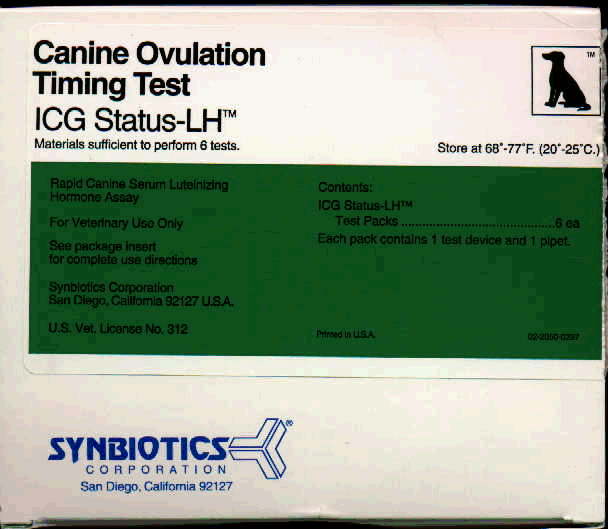|
Canine Ovarian
Remnant Syndrome
(Estrus after
Ovariohysterectomy)
Problem:
Questions:
Why?
-
Ovarian remnant left at surgery - faulty
technique?
-
17% of post ovariohysterectomy complications in
one study were due to ovarian remnants.
-
May be anomalous accessory ovarian tissue in the
broad ligament
When?
Diagnostics:
-
Vaginal
cytology - should be cornified cells if there is any estrogenic
stimulation endogenous or exogenous).
-
If there is an ovarian source, estrogen
should decline and cornification subside in 9-20 days
-
If the estrogen is exogenous, the
cornifcation will subsist.
-
Progesterone - Progesterone should be high for
approximately 2 months after the signs of estrus regress if there is
an ovarian source of estrogen.
-
LH testing - Löfstedt RM, Vanleeuwen JA. Evaluation of a commercially available luteinizing
hormone test for its ability to distinguish between ovariectomized and
sexually intact bitches. J Am Vet Med Assoc. 2002 May 1;220(9):1331-5.

-
Single high serum LH concentration was not a
reliable indicator of ovarian removal
-
A single low serum LH concentration was an
excellent indicator that a bitch was sexually intact.
-
The LH test
results were positive within 10 days after ovarian removal
-
Remained high in bitches from which ovaries had been removed > 5
years previously.
-
Excellent agreement in test interpretation within and among
evaluators and over a 6-hour time span.
-
Ultrasound
-
Hard for most to identify ovaries (need to
scan repeatedly over time to identify. See it in the picture
below?
-
Follicles may be seen on ovaries.
-
Corpora lutea do not always appear
hyperechoic
-
11/12 scanned (21 total in study) in one
study had suspected ovaries (JAVMA 236:548-551, 2010)
-
Treatment - Surgery
-
Location
-
6/21 - left pedicle
-
13/21 - right pedicle
-
2/21 - both pedicles
Other sources of estrogen
Treatment
|